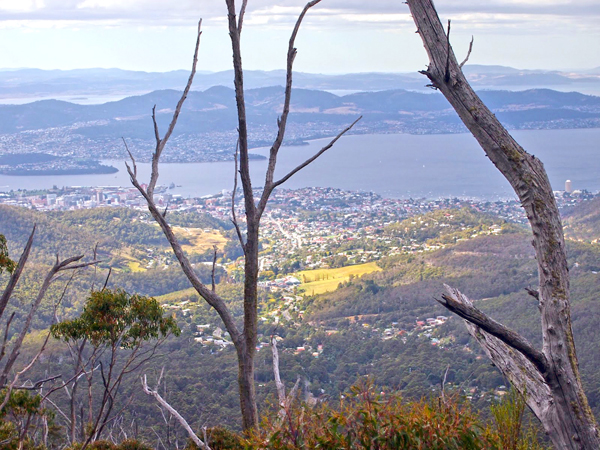As higher levels of government have vacated the climate policy space, it’s left to the bottom tier to show the way. [7 October 2014 | Peter Boyer]
Public debate over how we should address climate change has tended to fixate on an Abbott government policy that’s now disappearing into fantasy land. It’s time to shift focus elsewhere.
At the heart of good climate policy is building resilient communities. Ideally, the conditions for this to happen are nurtured by higher levels of government, but now that they’ve ditched social reform in favour of saving money, local resources are pretty well all that’s left.
More than half of all people now live in a city. That proportion is estimated to blow out to two-thirds by 2050, underlining the fact that we’re a social species. How we live together is now more significant to us than ever.
Situated on the front line of public services, local government is the most neglected and impoverished of the three tiers of Australian government. But there’s reason to believe that it’s a far more potent force for climate action than the national debate has ever acknowledged.
Past elections have done little to enhance councils’ stodgy reputation. Discussion in campaigns tends to be all about what we can see and touch – roads, street lighting, garbage, local business and such like – rather than things we might imagine or aspire to.
But looking at all those standard local issues in the context of carbon emissions and our capacity to adapt to a changing climate casts them in a whole different light.
Roads are now facilities for buses, bikes and people as well as cars. We don’t dispose of garbage now; we manage it, and this involves recycling and biogas energy. Encouraging local business is no longer just a ho-hum, parish pump issue, but central to every successful community.
The evidence of this transformation can also be found in the campaigning for this month’s local government elections. In every municipality there’s a good sprinkling of candidates for whom energy, climate and sustainable communities are primary issues.
The trend is especially noticeable where you might least expect it, in municipalities where raw nature has long given way to the trappings and services of urban life: paved streets, multi-storey buildings, town water and sewerage. The less we have of nature, the more we seem to value it.
With three weeks still to go before the polls close, many candidates are still putting together campaign material. But in the Hobart City Council elections, at least, early indications are that at least half the candidates will be putting some weight on community resilience and sustainability.
As in many municipalities, a sizeable contingent of Tasmanian Greens is standing in Hobart. Predictably, all of them give a high priority to environmental matters, including climate and energy.
As sitting aldermen Helen Burnet and Phillip Cocker (candidates for Lord Mayor) and Bill Harvey (standing for deputy Lord Mayor) have the highest profile among the Greens. They’ve all spent years actively pursuing a smaller carbon footprint for Hobart, and continue to do so.
Anna Reynolds and Rachel Andrew are other Green candidates who’ve outlined strong climate and sustainability programs taking in transport, energy conservation, urban design and divestment.
We expect this of the Greens, but it’s telling that thinking along these lines has infiltrated other campaigns. Businesswoman Sue Hickey, engineer Noel Carroll, restaurateur Mike Dutta and architect Tim Penny have all in various ways expressed a wish to see a more sustainable Hobart.
Three other candidates stand out. Alderman Eva Ruzicka has for many years been a strong advocate for past successful carbon-reducing initiatives by the council. Corey Peterson, sustainability manager at the University of Tasmania, has a long track record on reducing the university’s carbon footprint and as an active member of the Sustainable Living Tasmania board.
An impressive newcomer to council elections is Suzy Cooper, a former scientist and stage comedian who has some serious and well-considered ideas about how the city can benefit from building resilience while mitigating risk through transport, housing and town planning innovations.
All this is still a far cry from a coordinated council action plan, but it points to a new council more willing than its predecessor to step into the policy space vacated by higher levels of government.
In some respects council staff are already there. As a matter of necessity local administrations are now seeking expert advice on legal implications of climate-related events, or the management of lands vulnerable to drought, bushfire, flooding or coastal erosion.
Other capitals are showing the way. Sydney has an ambitious program to cut all CBD emissions by 70 per cent by 2030, while Melbourne is going for carbon neutrality by 2020. Experience there shows that a committed Hobart could realistically pursue many ideas from this election campaign.
Last month’s report of the Global Commission on the Economy and Climate identified a high level of responsiveness to climate and sustainability issues by cities around the world, including major Australian centres, and recommended that they be given greater fiscal autonomy to tackle them.
Given the indifference of higher levels of government to helping build more sustainable communities, and the contrasting wealth of ideas at the level of local government and communities, this would be money well spent to rejuvenate our response to climate change.

